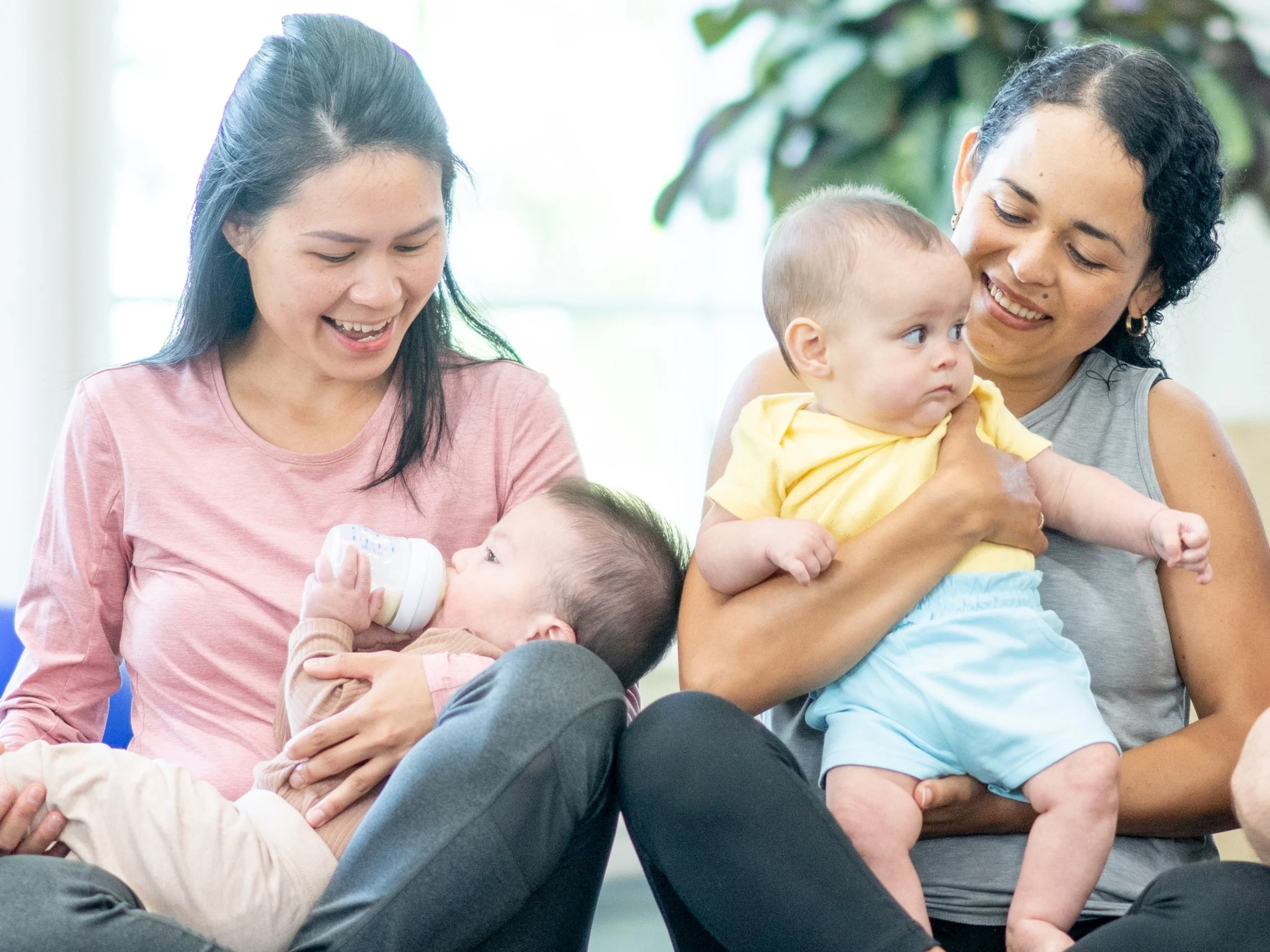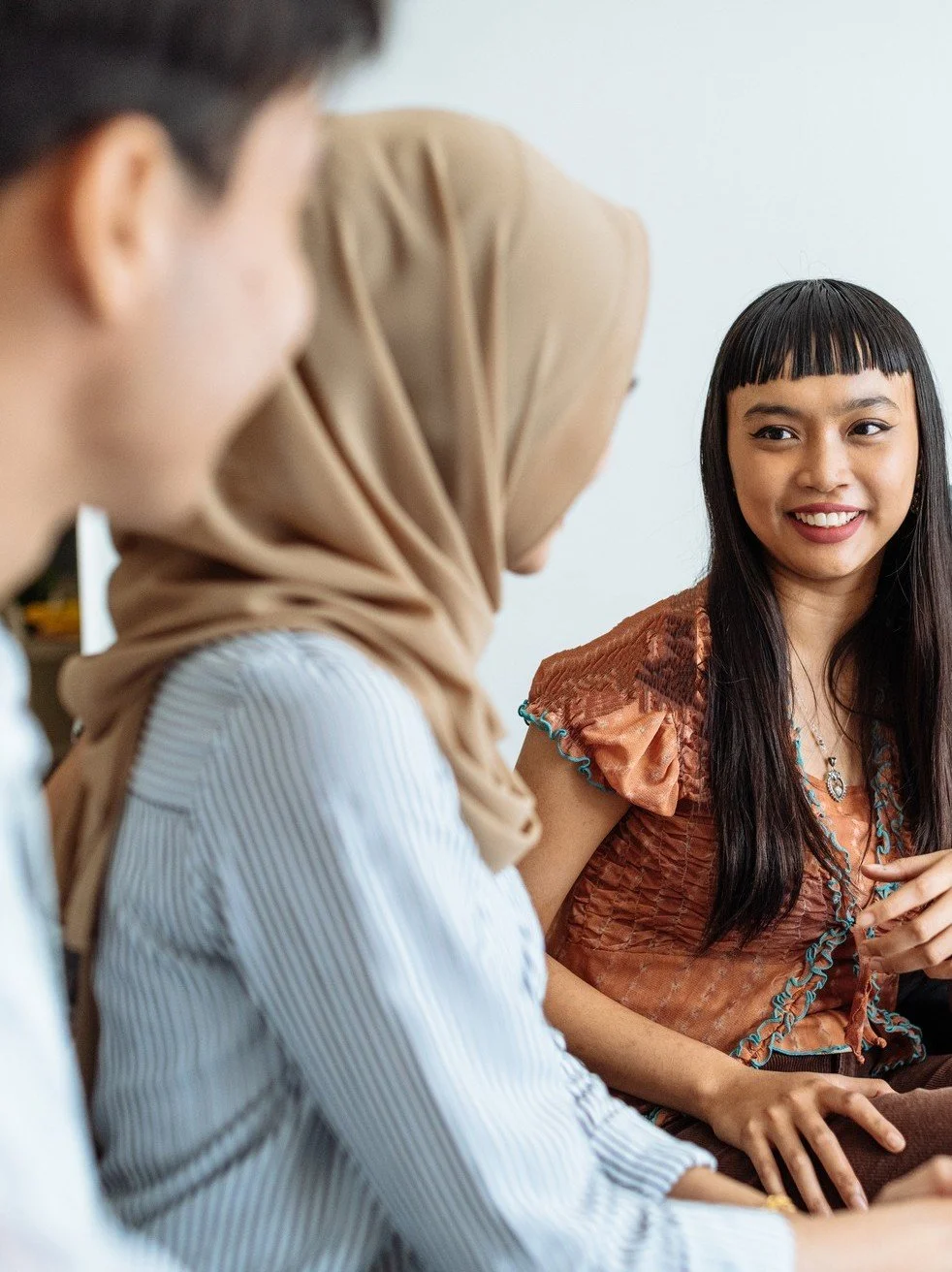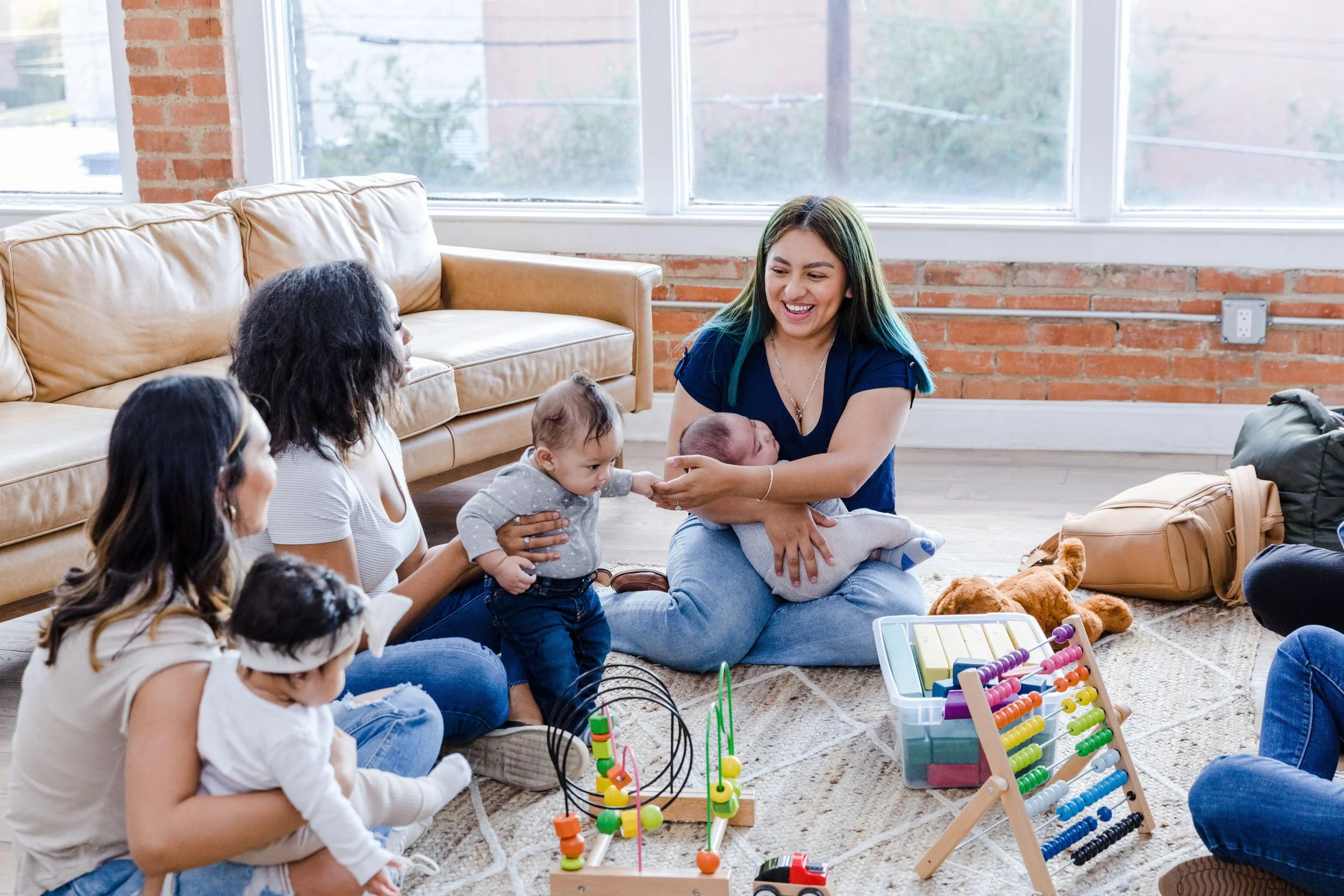Groups & Workshops for Collective Healing
We believe in caring for the collective. Besides individual and couples therapy, we offer groups and workshops rooted in liberation and community. Healing doesn’t have to happen in isolation—come learn, unlearn, and feel seen alongside others navigating similar experiences.
About Our Groups
At Space For Kapwa, we believe that connection to community is an essential component of healing, especially for those who have experienced marginalization in society’s many unjust systems.
Our groups are designed to make trauma-informed connection and healing accessible to everyone. We intentionally ground our groups in social justice, anti-oppression, and liberation. Whether you’re navigating life transitions, parenthood, or simply seeking community, our groups are here for you.
Right now, our main offering is Mom Village: Support Groups for Decolonizing Moms, centering the experiences of new and new-ish parents.
If you’re interested in a group that isn’t currently available, please reach out and let us know what you’re hoping to find.
We offer the following types of groups (facilitated by a licensed therapist):
Peer support groups
Psychoeducational groups
Group therapy
Mom/parent meet-ups
Virtual and in-person options (based in San Jose, CA)
Welcome to Mom Village
These groups are for decolonizing moms—parents who are actively questioning and resisting the oppressive systems and messaging often normalized in mainstream Western society. We recognize how these systems can deeply impact our mental and emotional health, especially during one of the most intense and transformative periods of life. Decolonizing is an ongoing practice. It is healing work for ourselves and for the generations to come.
Whether you're new to decolonizing and social justice, or you've been doing this work for years, you're welcome here. We’re grateful for the collective wisdom that each member brings to our community.
Pricing with Care
Our groups reflect a commitment to social justice and decolonizing systems that often create barriers to care. We aim to make support groups accessible while honoring the labor of our facilitators.
Many groups are free, with the option to donate what you can.
Some have a sliding scale fee, where you choose what feels right based on your circumstances.
Every participant receives the full experience, no matter what they pay.
Our offerings include:
Limited series groups, typically 5–6 sessions, facilitated by licensed or associate therapists, each focused on a specific topic or subpopulation within parenthood
Ongoing groups that accept new members on a rolling basis
-

AAPI Mothers Support Group (Peer Support Group)
-

First-Year Moms (Group Therapy)
-

Filipinx Moms: “Interpreting Ina” (Peer Support Group)
Peer Support Groups: Free or Donation-Based
Our peer support groups are by default free and open to all.
If you’d like to contribute at any time, you may do so here.
Any amount is welcome and helps support our facilitators and the Mom Village community—thank you!
Please note: We are not a nonprofit, so donations are optional and not tax-deductible.
About Our Workshops
Space For Kapwa also loves connecting with the community when we facilitate workshops (as well as trainings and other types of presentations)!
Here are some topics we are passionate about and have presented on in the community:
Internal Family Systems (IFS) and Parts Work
AAPI & BIPOC Motherhood & Mental Health
Parenting & Social Justice
Decolonizing Mental Health for Filipinx(es)
Is your group interested in hosting Space For Kapwa for a workshop or other speaking engagement? Reach out—we’d love to connect!

Let’s walk this journey together.
You deserve care that sees the whole you. We offer therapy that’s trauma-informed and centered on connection, especially for people and communities who’ve been marginalized.



